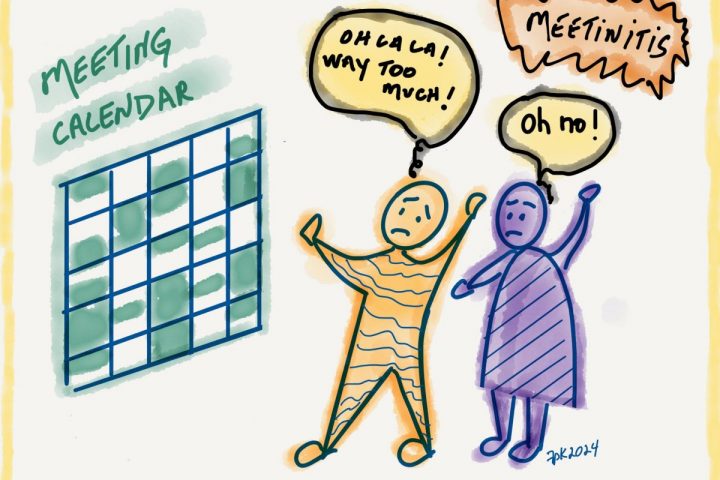The Zen school of Buddhism has a long history, and a great variety of disciplines and lineages. This post explores a few similarities between the wisdoms of Zen and sociocracy, based primarily on contemporary lineages of “engaged Buddhism.”
 Not Knowing
Not Knowing
Fundamental to most forms of Zen Buddhism is a commitment to penetrating the unknown – that is, releasing attachments and assumptions, ‘not knowing’, being open to new possibilities.
In sociocratic contexts, we embrace and embody a similar commitment by understanding that, for example, a proposal put forward in a policy meeting is merely a starting point. Whatever the proposal claims to ‘know’ about what is needed may be partly or completely changed by the time we reach consent. We don’t stay attached to the starting point – we explore it, we examine it, remaining open to new information, awareness, and perspectives.
The ‘election’ process – that is, selection by consent – is similar. We may or may not know at the start whom we want to nominate and why. Even when we do have a clear nomination to begin with, we remain open and listen to all the other nominations, and any changes, and reasons for those. We hear what others are bringing to the conversation and let it inform our thinking along our path to consent.
Even more so, the proposal generation process invites ‘not-knowing’, as we start with only an issue to address. First we simply describe and define the issue – ‘bearing witness’ to it – from all our different perspectives and experiences. Then we attempt to go beyond that and ‘bear witness’ to it as a group – setting aside our individual ideas of ‘knowing’ what it is, to find a collective understanding that serves our larger purpose.
Oneness
Another fundamental tenet of Zen is recognizing the oneness of all that we typically think is separate. We come to understand, through deep observation, that what one ‘part’ does affects all other ‘parts’, to some degree or another. Through seeing how ‘parts’ affect each other, and make up a whole system, we may find ways to reduce suffering – that is, to increase harmony – within the system.
The root of the words organization and organism are the same. An organization is like an organism in that what we see as ‘parts’ – employees in an organization, individual organs in our bodies – are highly interdependent, are parts of a larger whole. There is feedback – communication back and forth – among the ‘parts’, whether it is our stomach and liver, or our production team and our sales team.
If this feedback is not sufficient for the needs of the organism, or organization – in quantity, quality, or both – then problems will arise. We may have abdominal pain and discomfort and poor digestion. The products the buyer receives may be different than what they expected from the sales brochure.
A sociocratic organization creates structures and processes to ensure adequate quality and quantity of feedback. The most essential form of this is the ‘double linking’ between circles – two people, one chosen by each circle, who are members of both circles.
Direct Experience
Many lineages of Zen have a commitment to ‘knowing’ through direct experience. Rather than learning abstract spiritual theories, or memorizing endless sutras, Zen asks us to pay attention to what is happening right now, in the present moment. Not just a little of our attention – all of it! Or as much as we can manage, at least. From this intensity of attention to “what is – right now,” we may find ourselves seeing, hearing, feeling, and understanding differently than when we are thinking about the past or future. Our minds may change, and our actions as well, to adjust to our new understandings.
In a sociocratic organization, we are usually acting over some span of time – doing something with some desired outcome. We have a similar commitment to pay attention, in our somewhat different context.
One way we do this is by identifying measurements and means of evaluation for what we are doing. What do we pay attention to, so we know if we are getting what we want? We also set reminders for ourselves about when we will pay attention to measurements and evaluation – the term we set for a policy, for example, or the frequency of measurements.
Attachment and Resistance
Resistance to trying sociocratic structures and processes, and resistance to trying Zen structures and processes, are much the same. Both systems invite us to step into some amount of ‘not-knowing’ – to change how we think, what we think we know, and how we do what we do, in significant ways. The more resistance we experience, the more significant the changes likely are.
This resistance can equally well be described as attachment to current structures and processes. We would rather continue knowing what we already know, and doing what we already do – even when we are not getting what we want from that knowing and doing. It still appears more comfortable than stepping into the ‘not-knowing’ of unfamiliar, possibly challenging structures and processes.
We offer countless excuses, justifications, and rationalizations for avoiding such changes, whether in a context of spiritual practice or of organizational governance. I’m too busy. That’s too risky. I don’t have the capacity. People will be upset. I’ve always done it this way. In Zen, these are all seen as some form of attachment. In other words, resistance to ‘not-knowing’.
Avoiding Insanity
These similarities between aspects of Zen and sociocracy are not exact. Sociocracy is not designed to be a spiritual path, and Zen is not designed to be a way to run organizations.
What they have in common at a broader level is invitations to look, think, and act systemically. To pay attention to what is right in front of us at the present moment, while also remembering larger perspectives.
Perhaps most importantly, both Zen and sociocracy invite us to avoid that often quoted working definition of insanity – “doing the same thing and expecting different results.” As one partly humorous, partly serious Zen bumper sticker says: “Don’t Believe Everything You Think.”




